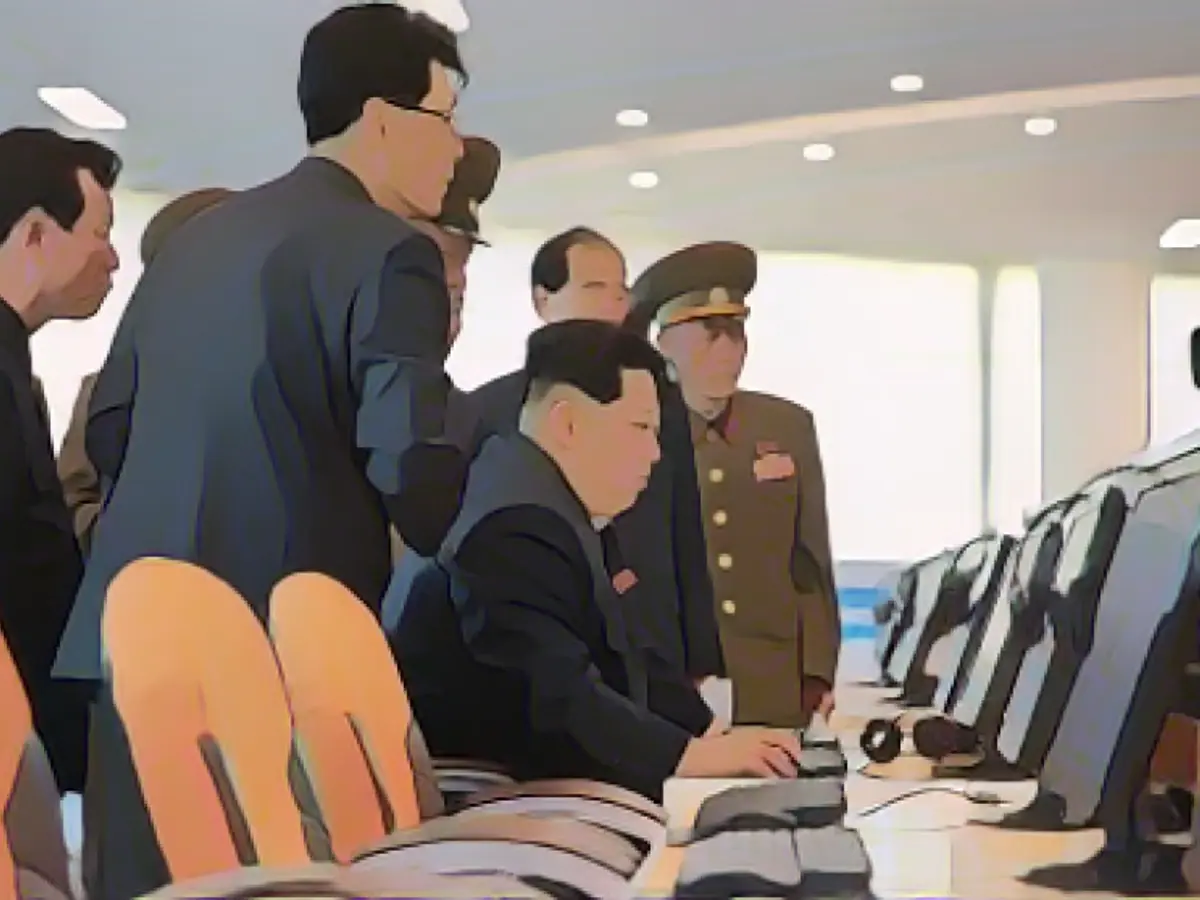Title: Kim's Space Surveillance Venture: A New Leap in North Korea's Arsenal
The Space Snooper
North Korea's leader, Kim Jong-un, claims success in launching a spy satellite into orbit
The world watched in surprise as North Korean dictator Kim Jong-un (39) announced his latest triumph – allegedly launching a spy satellite into space. After two unsuccessful attempts, the announcement sparked discontent worldwide.
The Launch
According to North Korea's state-run KCNA agency, a carrier rocket lugging the "Malligyong-1" satellite took off at 10.42 p.m. (2.42 p.m. local time) on a Tuesday in North Phyongan province in November. The rocket sailed through the sky, following the designated path, and twenty minutes later placed the satellite precisely in its orbit.
A Series of Spies in the Sky
The Kim dynasty hinted at more spy satellites in the making to reinforce North Korea's surveillance capabilities over South Korea and other territories. One thing is certain – without Russia's support, North Korea may not have reached these heights yet. The increasing cooperation between Putin and Kim has led to a strengthening of their partnership.
Japan's Confirmation
Japan's Prime Minister Fumio Kishida (66) provided a statement on Twitter following North Korea's suspicious missile launch. According to Kishida, the country believed North Korea had launched a ballistic missile, which presumably landed in the Pacific Ocean. Japanese authorities have been increasingly concerned with the aggressive military development of North Korea, as it consistently pushes the boundaries.
South Korea's Response
South Korea had already suspected North Korea of engineering a "military surveillance satellite" just days prior to the launch. However, the South Korean General Staff did not disclose any official details regarding the outcome of the launch, nor confirm or deny its success.
The USA's Stance
The White House National Security Council spokesperson Adrienne Watson expressed concern over North Korea's actions, declaring that the use of "ballistic missile technology" represented a violation of United Nations Security Council resolutions. The launch could potentially destabilize the Asia-Pacific region and threaten global security.
Previous Attempts
Kim Jong-un's industry has had two previous failures attempting to launch a spy satellite into orbit – in May and August - with the May attempt ending in an explosion mid-flight.
An Unchecked Threat
North Korea's record-breaking number of weapons tests this year has concerned international security watchdogs. Their nuclear weapons and missile program remain significant threats, and the UN continues to call on North Korea to halt their activities.
The Role of Russia
Cooperation between North Korea and Russia has heavily influenced Korea's space program, ensuring the rapid advancement of the country's surveillance capabilities.
Implications for South Korea
South Korea, an essential player in the region, closely monitors North Korea's activities related to the Korean War and the ongoing crisis. The capability to launch military spy satellites could present future surveillance threats specifically targeting South Korea and other regions.
In conclusion, the international community remains vigilant as North Korea continues to develop its military capabilities, aiming to push the boundaries of what is considered acceptable. South Korea actively works to strengthen its own military surveillance abilities to protect the interests of its people and reinforce its position as a regional power.







